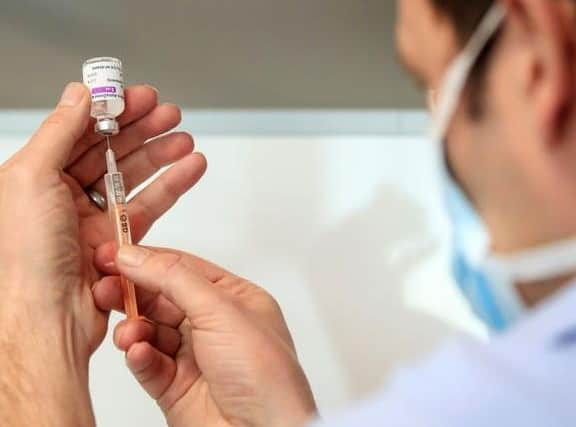Health bosses urge Wigan residents to continue getting Covid-19 vaccine
and live on Freeview channel 276
Regional health bosses today pointed Wigan residents who might be worried to a national statement also suggesting there is no evidence the vaccine, which has been given to thousands of Wiganers, and the blood clots are directly linked.
People should therefore go to their appointments to get their doses, the Medicines and Health Regulatory Authority (MHRA) has said.
Advertisement
Hide AdAdvertisement
Hide AdAuthorities in Germany, Denmark, Norway, Iceland, the Republic of Ireland and the Netherlands have chosen to pause giving the AstraZeneca jab while the matter is looked into.


However, health experts have pointed out there is no evidence the rate of blood clots among those who have been vaccinated is any higher than the number of incidents which occur every year among the general population.
Dr Phil Bryan, MHRA vaccines safety lead, said: “Vaccine safety is of paramount importance and we continually monitor the safety of vaccines to ensure that the benefits outweigh any potential risks.
“The Danish, Icelandic and Norwegian authorities’ action to temporarily suspend use of the vaccine is precautionary whilst they investigate.
Advertisement
Hide AdAdvertisement
Hide Ad“Blood clots can occur naturally and are not uncommon. More than 11 million doses of the Covid-19 Vaccine AstraZeneca vaccine have now been administered across the UK.
“Reports of blood clots received so far are not greater than the number that would have occurred naturally in the vaccinated population.
“The safety of the public will always come first. We are keeping this issue under close review but available evidence does not confirm that the vaccine is the cause.
“People should still go and get their Covid-19 vaccine when asked to do so.”
Advertisement
Hide AdAdvertisement
Hide AdProfessor Sir David Spiegelhalter from Cambridge University looked at the figures for deep vein thrombosis (DVT), which happens to around 1,000 people every year.
With that in mind, and given that 17 million jabs of the Oxford-AstraZeneca vaccine have been administered to people, the 15 reports of DVT as a possible adverse affect were fairly low, he said.
He suggested the statistics would imply around 350 people would have DVT the week after having the jab, given its prevalence and vaccine roll-out rates.
Professor Anthony Harnden, deputy chairman of the Joint Committee on Vaccination and Immunisation (JCVI), said there were around 3,000 blood clots a month and there was no evidence of difference in occurrences between those who have and have not received the AstraZeneca vaccine.
Advertisement
Hide AdAdvertisement
Hide AdHe also pointed out that as Covid-19 causes blood clots it made getting vaccinated all the more important.
The Prime Minister’s spokesperson also said on Monday morning that the jab was safe and effective.
The World Health Organisation (WHO) has also played down any concerns over the Oxford-AstraZeneca vaccine.
Regulators have also backed the jab as safe.
Doctors did say patients may experience some mild side effects after receiving their first dose, such as a very sore arm; fever; malaise; headache and sometimes chills.
Advertisement
Hide AdAdvertisement
Hide AdThese are particularly common among women and should be tackled by taking paracetamol.
If you value what we do and are able to support us, a digital subscription is just £1 for your first month. Try us today by clicking here and viewing our offers.